Publications Search Results
Our Publication Search Results
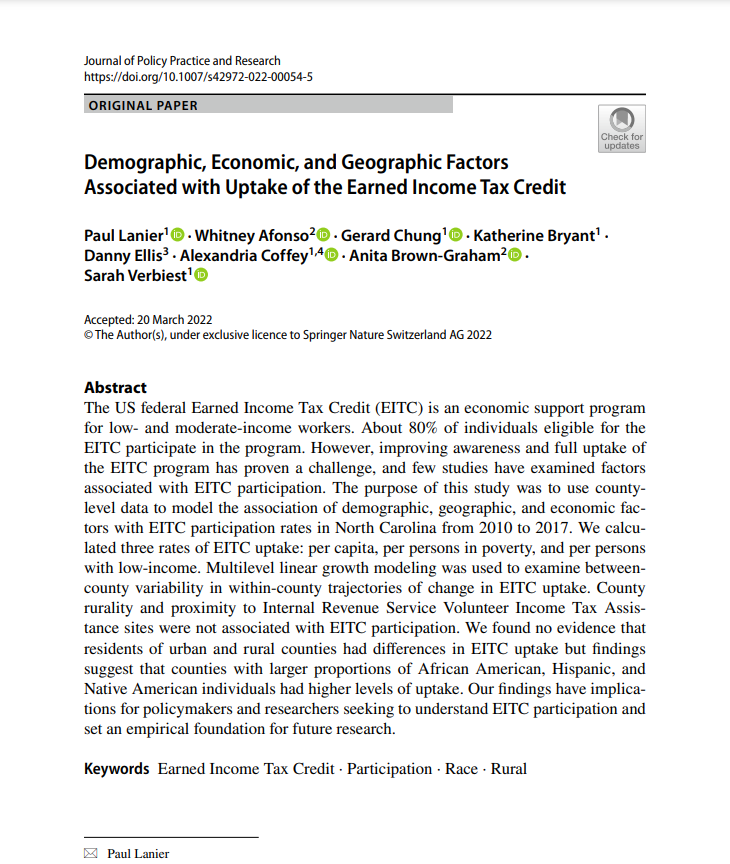
Demographic, Economic, and Geographic Factors Associated with Uptake of the Earned Income Tax Credit
04/06/22The US federal Earned Income Tax Credit (EITC) is an economic support program for low- and moderate-income workers. About 80% of individuals eligible for the EITC participate in the program. However, improving awareness and full uptake of the EITC program has proven a challenge, and few studies have examined factors associated with EITC participation. The purpose of this study was to use county level data to model the association of demographic, geographic, and economic factors with EITC participation rates in North Carolina from 2010 to 2017.
…
Continued
Homegrown Tools Case Study: Belmont, NC
01/31/21“The “Keep the Lights on in Belmont” campaign was created and is still run by the Downtown Belmont Development Association. Originally, the strategy started to address concerns about Main Street businesses’ inability to continue operating. As it is the center of town, it was important to put focus on ensuring its health.”
…
Continued
Homegrown Tools Case Study: Fayetteville, NC
01/31/21“After businesses began to temporarily close and unemployment increased, it became clear that the pandemic would have an immediate impact on the local economy in Fayetteville. The City’s Economic and Community Development Department began to work with the Chamber of Commerce and the Center for Economic Empowerment and Development (CEED), a local nonprofit, to find a solution. This partnership network paved the way for providing bridge funding for businesses.”
…
Continued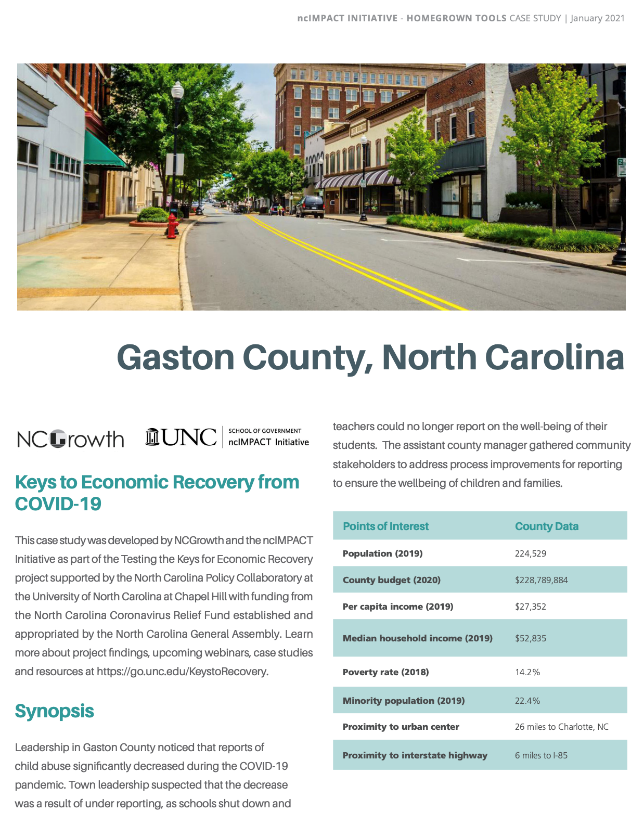
Homegrown Tools Case Study: Gaston County, NC
01/31/21“The BrightHive partnership was established before the pandemic, as Gaston County had already been working on process improvements for child welfare reporting. Given the unique impact of the pandemic on this issue, the County was able to use CARES Act funds to elevate the work and contract BrightHive to create a data trust. A data trust is a system that brings together data from many different sources, synthesizing it onto one platform. BrightHive is creating a data trust to identify new, and more resilient sources of data and data-sharing networks to provide the information human services staff need to keep children safe from abuse and/or neglect.”
…
Continued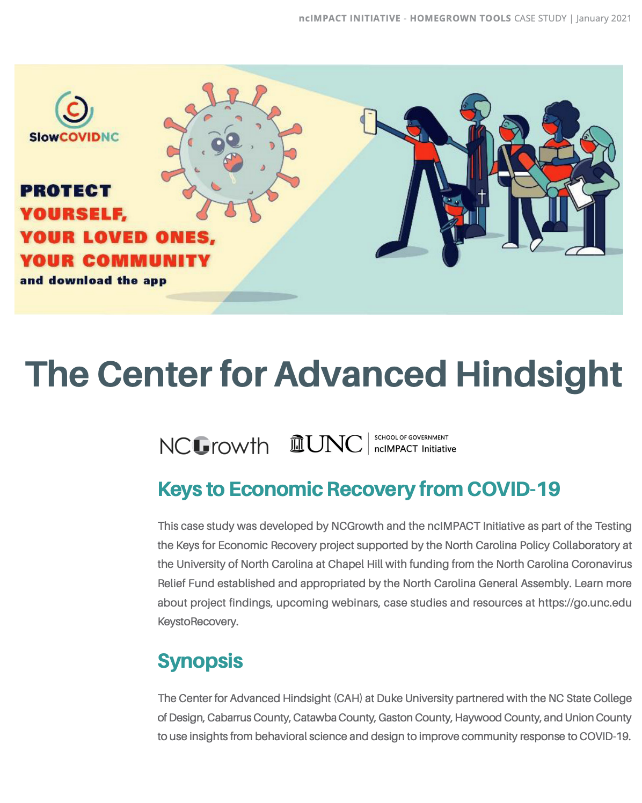
Homegrown Tools Case Study: The Center for Advanced Hindsight
01/31/21“The Center for Advanced Hindsight at Duke University seeks to use behavioral science to make people happier, healthier, and wealthier through research and human-centered design. With this project, CAH sought to provide behavioral science tools to county governments that would lead to long term behavior change, allowing for safe re-opening and realization of economic opportunities that have been delayed due to COVID-19. Recognizing that a majority of the federal relief funding was targeted to cities, CAH designed the project for counties to test solutions, promote collaboration, and learn from each other.”
…
Continued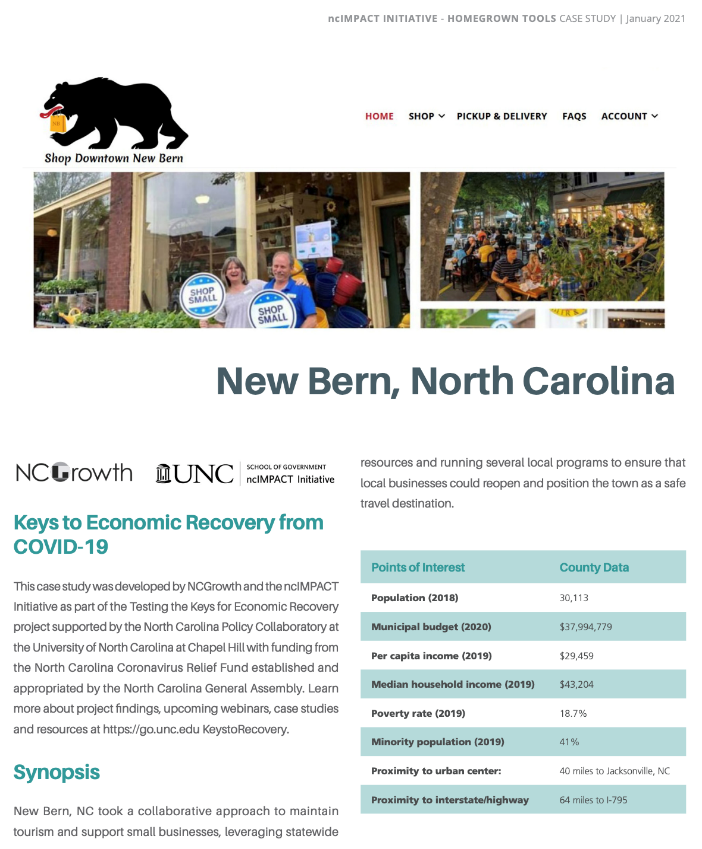
Homegrown Tools Case Study: New Bern, NC
01/31/21“Count on Me NC was promoted to all the destination marketing organizations across North Carolina. Visit New Bern, New Bern’s tourism development authority, was an early adopter and went further to partner with Visit NC through their cooperative marketing program to promote the town as a safe travel destination. Visit New Bern encouraged local restaurants, hotels, and other businesses to get the Count On Me NC certification so that they could position the town as a safe travel destination.”
…
Continued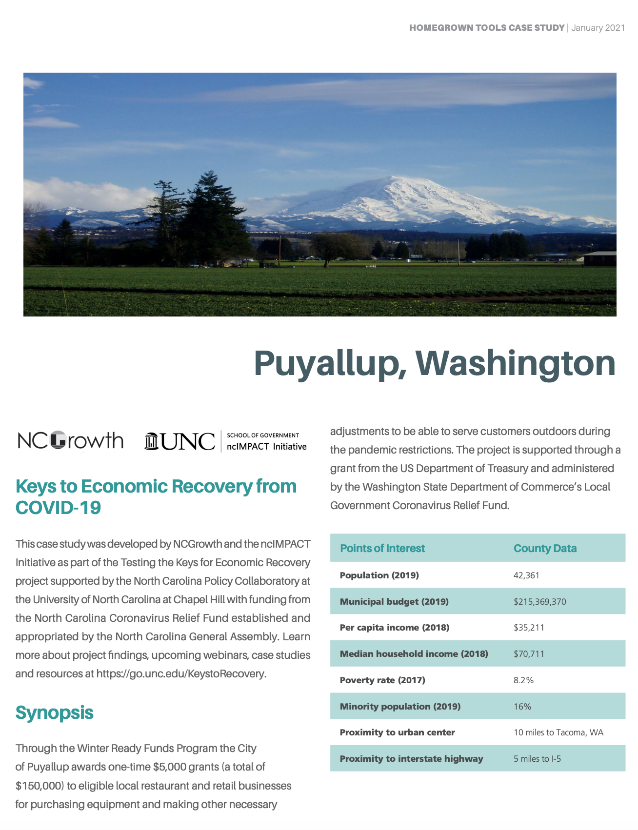
Homegrown Tools Case Study: Puyallup, WA
01/31/21“The City of Puyallup is a commuter city in the Puget Sound region of Washington. Puyallup’s economy relies heavily on the retail, restaurant, and visitor services industry of its commercial district, anchored by South Hill Mall, and its historic downtown. The unique nature of the COVID-19 pandemic and the indoor capacity restrictions negatively impacted local businesses. To allow for retail and restaurant businesses to operate according to public health guidelines, the City created a grant to support businesses’ efforts to prepare for the colder winter temperatures and continue to provide services outdoors.”
…
Continued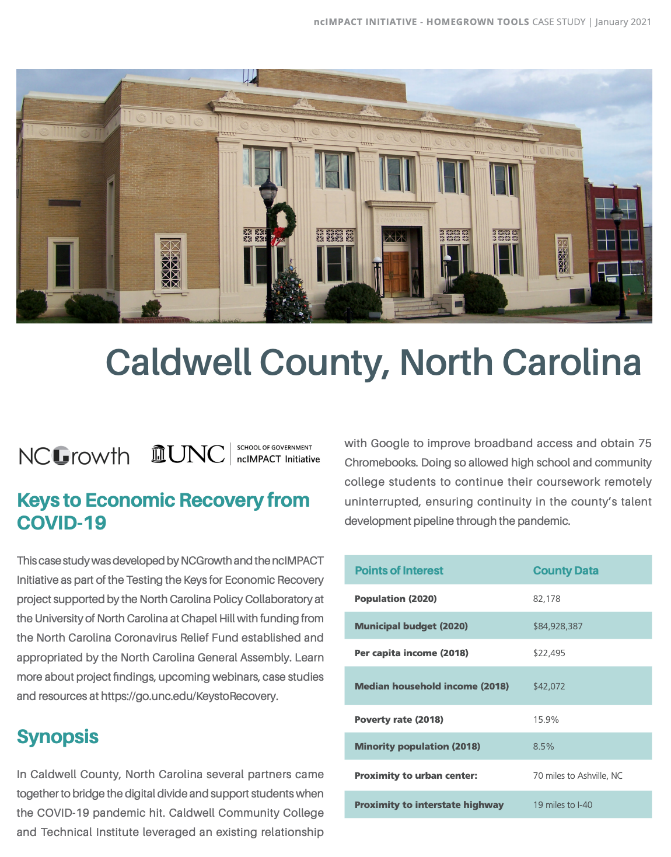
Homegrown Tools Case Study: Caldwell County, NC
01/31/21“CCC&TI first consulted with the county health department and other healtcare entities to understand the scope of the problem. CCC&TI also surveyed students and conducted outreach through social media to understand their needs. They found 111 students in curriculum courses without internet access, 78 without devices, and 40 lacked both. Based on this information, leadership reached out to Google to explore techincal solutions. The college has a longstanding relationship with Google and their history of collaboration and trust made it easy to work together to address this emergency need.”
…
Continued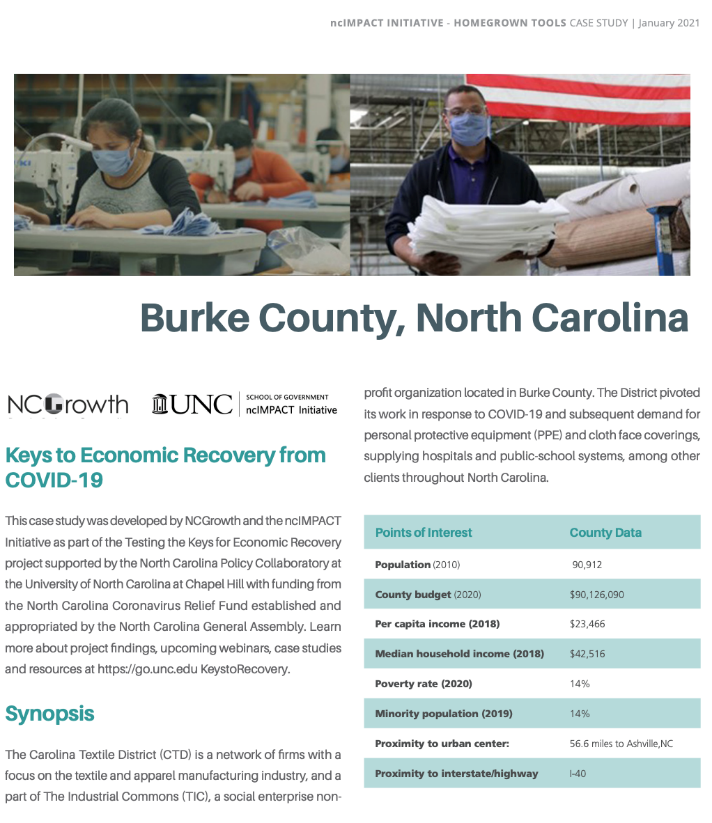
Homegrown Tools Case Study: Burke County, NC
01/31/21“During the COVID-19 pandemic when demand for regular products slowed down, this network and support structure enabled CTD to quickly meet the increased need for personal protective equipment (PPE) and cloth face coverings. Their overall structure did not change, but rather shifted to meeting specific needs by adding new partners and contracting with new clients.”
…
Continued